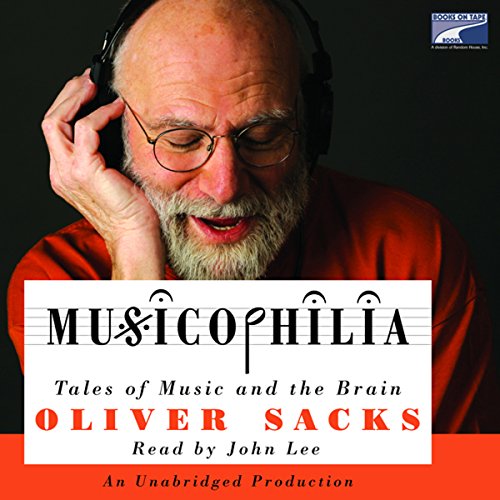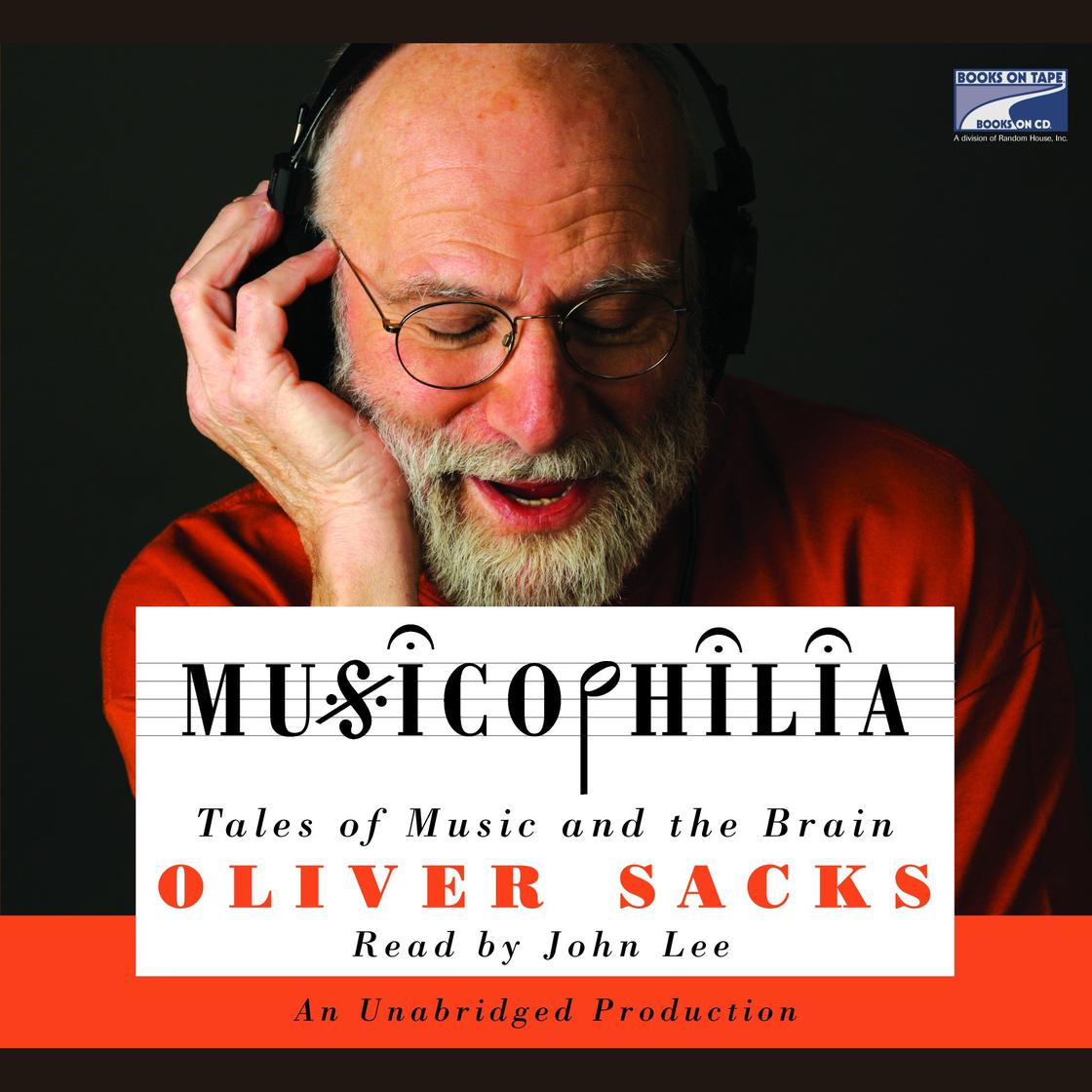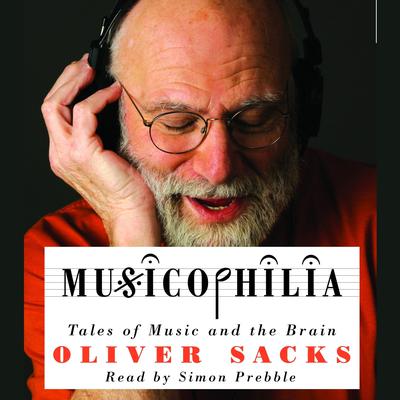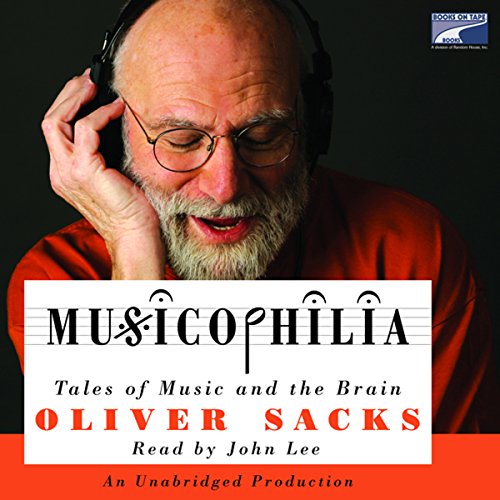Oliver Sacks’ “Musicophilia” audiobook explores the profound impact of music on the human brain. It delves into neurological phenomena linked to music.
Musicophilia by Oliver Sacks offers an intriguing exploration of the relationship between music and the brain. Sacks, a renowned neurologist, examines how music can evoke powerful emotions, trigger memories, and even alter brain function. He shares compelling case studies and anecdotes, highlighting music’s therapeutic potential in treating neurological disorders.
The audiobook provides insights into conditions like amusia, musical hallucinations, and savant syndrome. Through engaging storytelling, Sacks reveals the deep connection between music and our cognitive processes. This work is essential for anyone interested in the intersection of music, neuroscience, and human experience. Dive into Musicophilia to uncover the fascinating ways music shapes our minds.
Introduction To Oliver Sacks
Oliver Sacks was a renowned neurologist and author. He explored the human mind through his writings. One of his famous works is “Musicophilia: Tales of Music and the Brain”. This book delves into the relationship between music and the brain. The audiobook version brings his insights to life. Let’s learn more about Oliver Sacks.
Biography
Oliver Sacks was born on July 9, 1933, in London, England. He grew up in a medical family. His mother was a surgeon, and his father was a general practitioner. Sacks studied at Queen’s College, Oxford. He later moved to the United States in 1960.
In the U.S., he completed his residency in neurology. He worked at various institutions, including the Albert Einstein College of Medicine. Sacks published many books, blending stories of patients with his medical expertise. He passed away on August 30, 2015. His legacy lives on through his writings.
Contributions To Neuroscience
Oliver Sacks made significant contributions to neuroscience. He studied rare neurological disorders. His approach was unique, combining clinical observations with patient stories. This made his work accessible to the general public.
Sacks’s book “Awakenings” is one of his most famous works. It describes his treatment of encephalitis lethargica patients. His book “The Man Who Mistook His Wife for a Hat” is also widely known. It includes case studies of patients with unusual conditions.
Through his writings, Sacks highlighted the complexity of the human brain. He showed how various disorders affect people’s lives. His work inspired many to learn more about neuroscience.
What Is Musicophilia?
Have you ever wondered how music impacts the mind? In Oliver Sacks’ Musicophilia, these fascinating questions are explored. This audiobook dives into the intricate relationship between the brain and music.
Concept Overview
Musicophilia is about the profound effects music has on the human brain. Oliver Sacks examines how music influences emotions, thoughts, and even physical health. He shares real-life stories and case studies to illustrate these effects.
In the book, Sacks describes how music can trigger memories and emotions. He also discusses how music can be a powerful tool in therapy. People with neurological conditions often respond to music in remarkable ways.
Origins And Inspiration
Oliver Sacks was inspired by his own experiences and observations. He was both a neurologist and a music lover. This unique combination led him to explore the connection between music and the brain.
Sacks noticed that many of his patients had strong reactions to music. Some found relief from symptoms, while others experienced joy. These observations fueled his interest and led to the creation of Musicophilia.
| Aspect | Details |
|---|---|
| Author | Oliver Sacks |
| Focus | Music and the Brain |
| Format | Audiobook |
In Musicophilia, Sacks blends science with storytelling. He makes complex ideas accessible to everyone. The audiobook format allows listeners to engage with the material in a dynamic way.
Oliver Sacks’ Musicophilia is a must-listen for anyone curious about the power of music.
Themes In Musicophilia
Oliver Sacks’ “Musicophilia” delves into the profound connection between music and the human brain. The audiobook explores how music impacts our memories, emotions, and neurological functions. Sacks presents captivating stories from his research and experiences, making complex topics easy to understand.
Music And Memory
Music has a powerful effect on memory. It can evoke long-forgotten memories and emotions. In “Musicophilia,” Sacks shares stories of patients who regain memories through music. For instance, Alzheimer’s patients often remember songs from their youth. Music helps them reconnect with their past.
Music can also improve cognitive functions. Studies show that listening to music enhances memory and learning. Students who study with background music often perform better. Sacks highlights these benefits in his audiobook, making a strong case for music’s role in memory.
Neurological Case Studies
Sacks presents fascinating neurological case studies in “Musicophilia.” He describes patients with unique brain conditions who experience music differently. One case involves a man who hears music after being struck by lightning. His brain rewired itself to perceive musical notes.
Another case details a woman with amusia. She cannot recognize melodies but understands rhythm. These stories show how diverse the brain’s response to music can be. Sacks’ detailed narratives bring these cases to life, making them engaging and informative.
| Case Study | Condition | Musical Experience |
|---|---|---|
| Man struck by lightning | Altered brain function | Hears music constantly |
| Woman with amusia | Amusia | Recognizes rhythm, not melody |
Sacks uses these case studies to explore the brain’s complexity. His storytelling makes neurological science accessible and fascinating. The audiobook is a treasure trove of insights into how music shapes our brains and lives.

Impact Of Music On The Brain
Oliver Sacks’ “Musicophilia” audiobook delves deep into how music affects the brain. It reveals the profound impact music has on our cognitive and emotional states. This section explores these impacts in detail.
Cognitive Benefits
Listening to music can improve brain function. Music enhances memory and concentration. It activates multiple brain areas simultaneously. Below are some key cognitive benefits:
- Memory Improvement: Music helps to recall information better.
- Enhanced Focus: Certain types of music improve concentration.
- Language Skills: Music aids in learning new languages.
Studies show that musical training boosts brain plasticity. This means the brain can adapt and grow more efficiently. Music also strengthens neural connections. These connections help in faster information processing.
Emotional Effects
Music deeply influences our emotions. It can uplift our mood or bring a sense of calm. Here are some emotional effects of music:
| Emotional Effect | Description |
|---|---|
| Mood Enhancement | Happy music can elevate your mood. |
| Stress Reduction | Relaxing music helps to reduce stress. |
| Emotional Release | Sad music can help in emotional release. |
Music also fosters a sense of community. Singing or playing in groups builds social bonds. It helps in expressing emotions that words can’t convey. Music therapy uses these emotional effects for healing purposes. Oliver Sacks highlights these profound impacts in “Musicophilia”.
Case Studies In Musicophilia
In Musicophilia, Oliver Sacks explores the unique relationship between music and the brain. The audiobook presents a range of fascinating case studies. These stories reveal how music affects individuals in extraordinary ways. Let’s dive into some of these remarkable stories and the scientific insights they offer.
Remarkable Stories
Oliver Sacks shares many incredible stories in Musicophilia. Each story highlights a unique connection between music and the mind.
- Tony Cicoria: A surgeon who, after being struck by lightning, develops an intense obsession with piano music.
- Clive Wearing: A man with severe amnesia who can still play and enjoy music, despite having almost no short-term memory.
- Dr. P: A music teacher who can only recognize his students by their voices, not their faces.
These stories are not just fascinating; they show the profound impact of music on the brain. Each case offers a glimpse into how music can transform lives.
Scientific Insights
The case studies in Musicophilia are more than just stories. They provide valuable insights into the science of music and the brain.
| Case Study | Scientific Insight |
|---|---|
| Tony Cicoria | Music can awaken dormant neural pathways. |
| Clive Wearing | Music can access parts of the brain that other stimuli cannot. |
| Dr. P | Music can serve as a powerful tool for identity and recognition. |
These insights highlight the transformative power of music. They demonstrate how music can unlock hidden capabilities within the brain.
Audiobook Experience
The audiobook experience of Oliver Sacks’ “Musicophilia” is truly unique. Listening to this book offers a different dimension. The spoken word brings the stories to life in a new way.
Narration Quality
The narration quality of “Musicophilia” is exceptional. The narrator’s voice is clear and engaging. Each chapter is delivered with emotion and precision. The narrator’s tone matches the mood of the book. This makes it easier to connect with the stories.
Listening Vs. Reading
Listening to “Musicophilia” offers a different experience than reading. The audiobook allows you to hear the rhythm of the text. You can listen while doing other activities. This makes it a flexible option for busy people.
Reading the book allows for a deeper dive into the content. You can pause and reflect on the text. You can also take notes easily. Both formats have their unique advantages.
| Aspect | Listening | Reading |
|---|---|---|
| Flexibility | High | Medium |
| Engagement | High | High |
| Reflection | Medium | High |
Critical Reception
The audiobook of Oliver Sacks’ Musicophilia has garnered significant attention. This section explores how critics, the public, and academia received it.
Reviews And Ratings
Musicophilia has received numerous reviews. Critics praise Sacks’ engaging storytelling and deep insights. Below is a table summarizing some key ratings:
| Source | Rating | Comments |
|---|---|---|
| Goodreads | 4.2/5 | Well-researched and captivating |
| Audible | 4.5/5 | Excellent narration |
| Amazon | 4.3/5 | Insightful and thought-provoking |
Public And Academic Response
The public response to Musicophilia has been overwhelmingly positive. Listeners appreciate the blend of science and personal stories.
Academics have also lauded the audiobook. It offers valuable insights into the relationship between music and the brain. Here are some points highlighting their response:
- Universities use it in psychology courses.
- Neuroscientists praise its accuracy.
- Educators find it a useful teaching tool.
Overall, Musicophilia continues to be a respected work. It bridges the gap between science and everyday experiences.

Legacy Of Oliver Sacks
Oliver Sacks was a brilliant neurologist and author. His work has touched millions. One of his notable works is the audiobook “Musicophilia”. This work explores the power of music on the brain. His legacy continues to inspire many fields.
Influence On Neuroscience
Oliver Sacks made significant contributions to neuroscience. He showed how music affects the brain. He used real-life stories to explain complex topics. This made neuroscience more accessible. His work has influenced many researchers.
Cultural Impact
Oliver Sacks also had a major cultural impact. His books were bestsellers. They brought complex topics to the public. “Musicophilia” helped people understand the link between music and the brain. His work inspired movies and plays. He became a cultural icon.

Frequently Asked Questions
What Is “musicophilia” By Oliver Sacks About?
“Musicophilia” explores the impact of music on the human brain. Oliver Sacks shares fascinating stories of people with neurological conditions who experience music in unique ways.
Is “musicophilia” Available As An Audiobook?
Yes, “Musicophilia” is available as an audiobook. It allows listeners to enjoy Oliver Sacks’ insights on music and the brain, narrated engagingly.
Who Narrates The “musicophilia” Audiobook?
The “Musicophilia” audiobook is narrated by Jonathan Davis. His narration brings Oliver Sacks’ compelling stories and scientific insights to life.
Why Listen To The “musicophilia” Audiobook?
Listening to the “Musicophilia” audiobook offers a unique experience. It combines Oliver Sacks’ captivating stories with the convenience of listening on-the-go.
Conclusion
Oliver Sacks’ “Musicophilia” audiobook offers a captivating exploration of music’s impact on the human brain. Its stories are both enlightening and engaging. Listening to this audiobook can deepen your understanding of the neurological connection to music. Dive into “Musicophilia” and discover the profound ways music shapes our lives.



